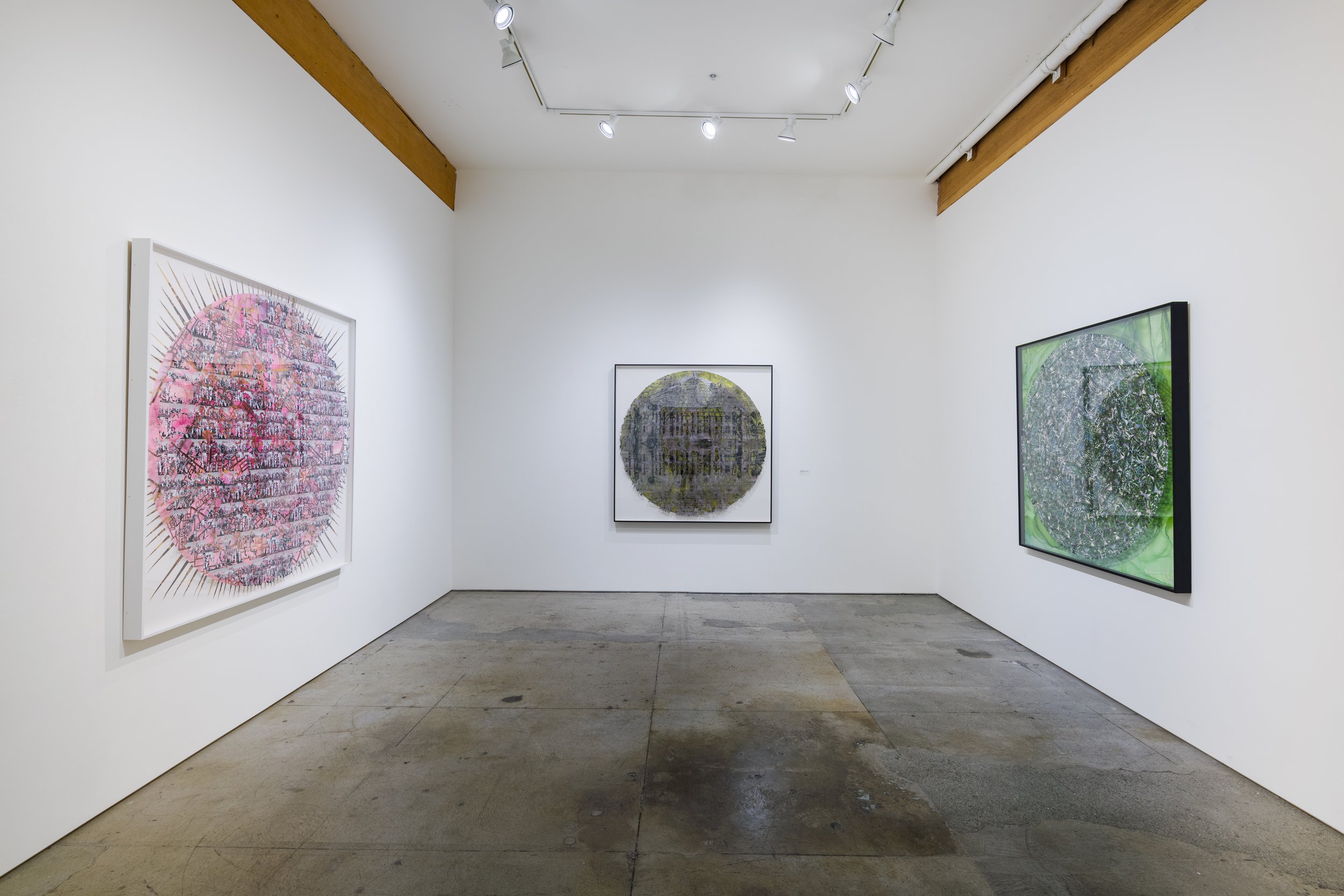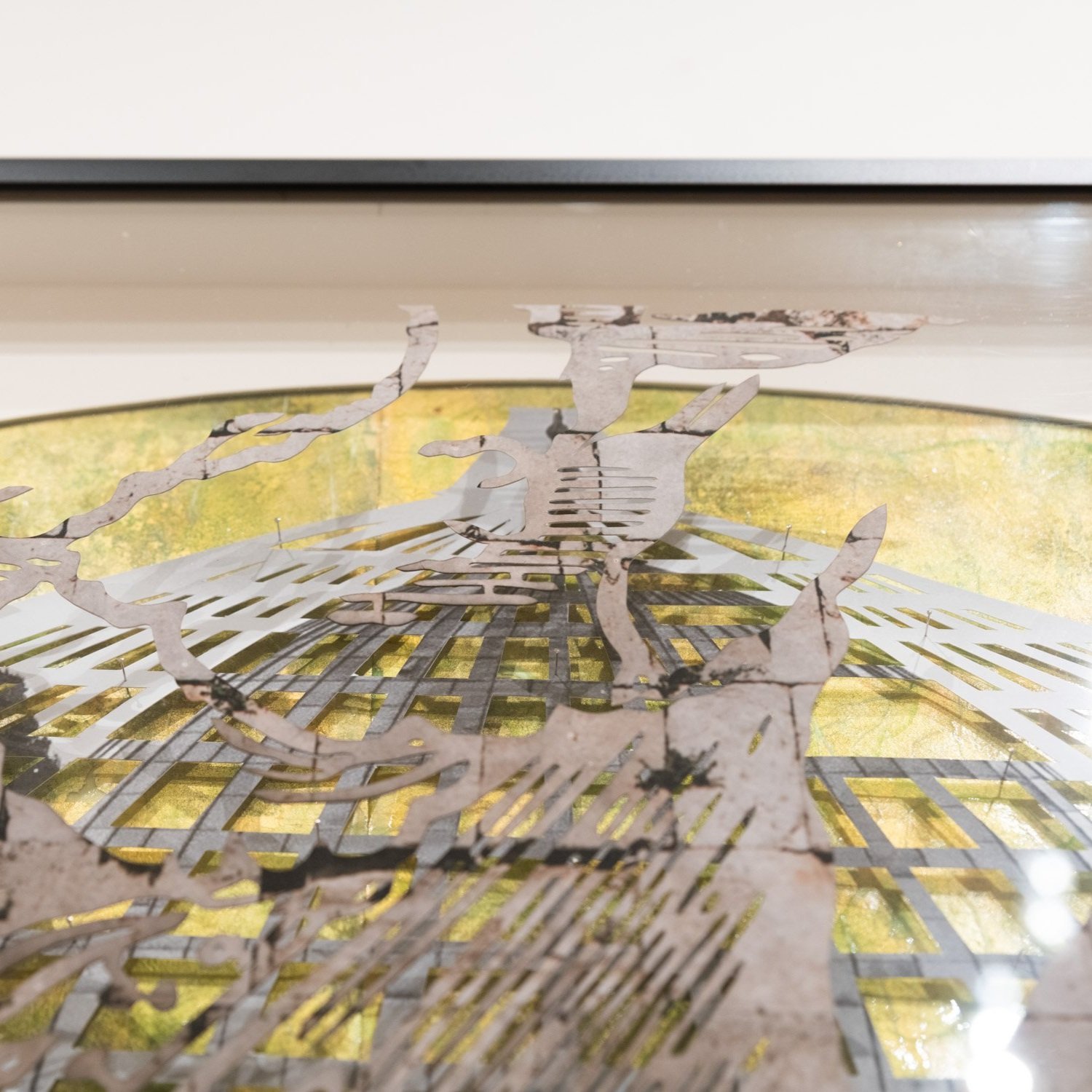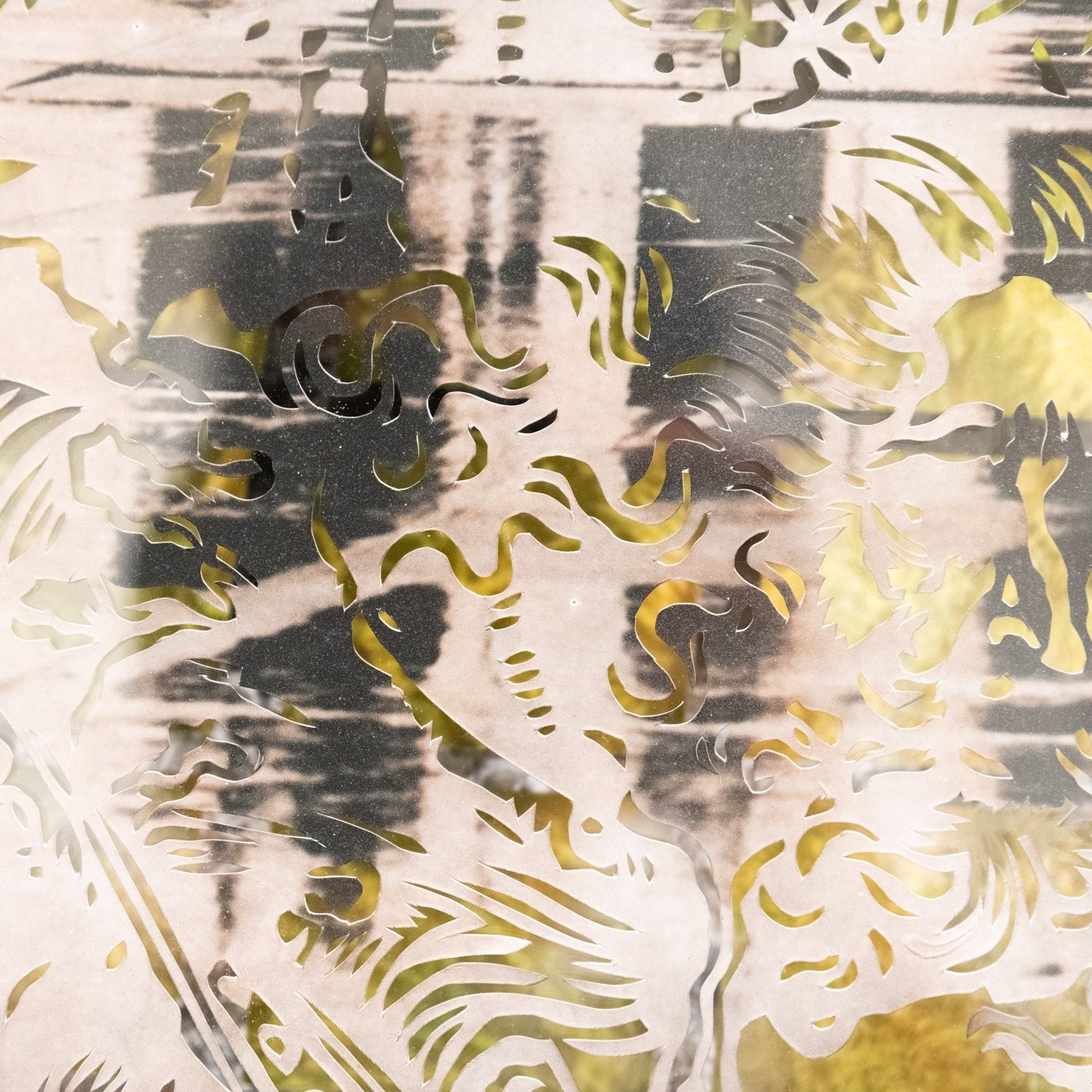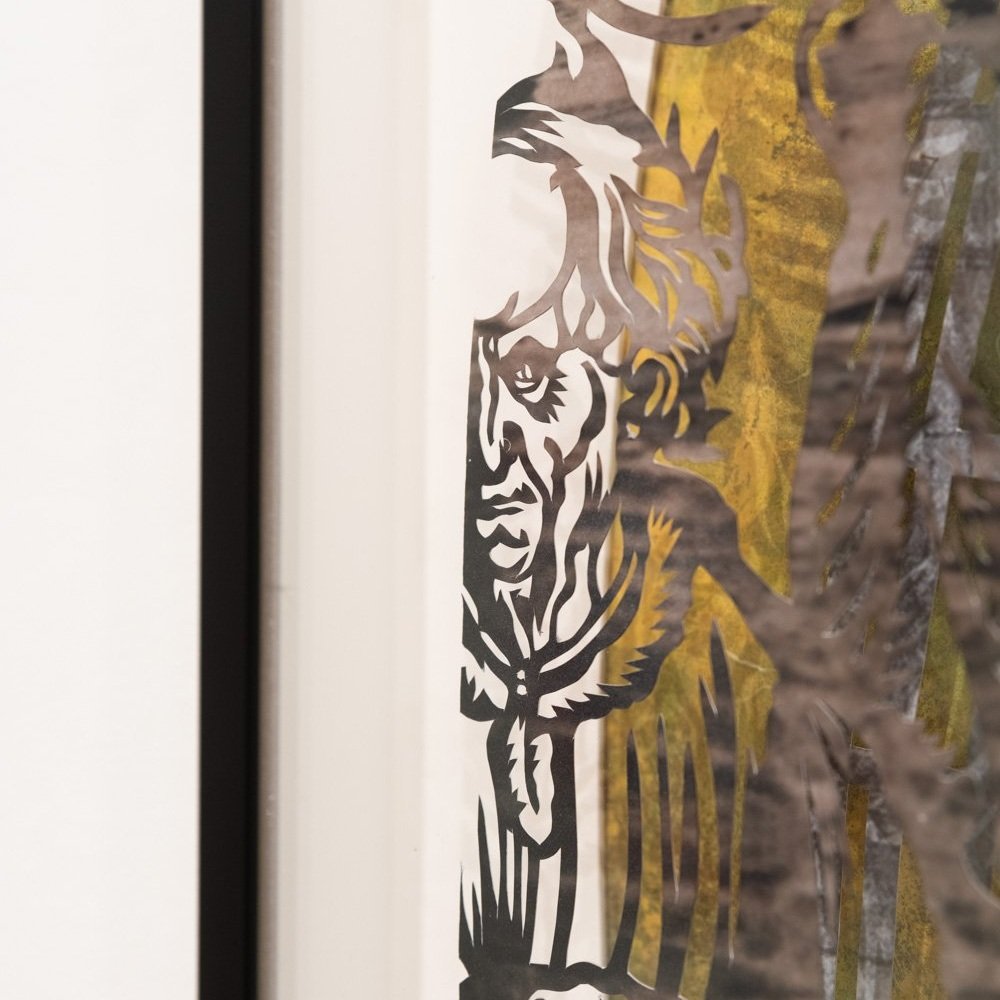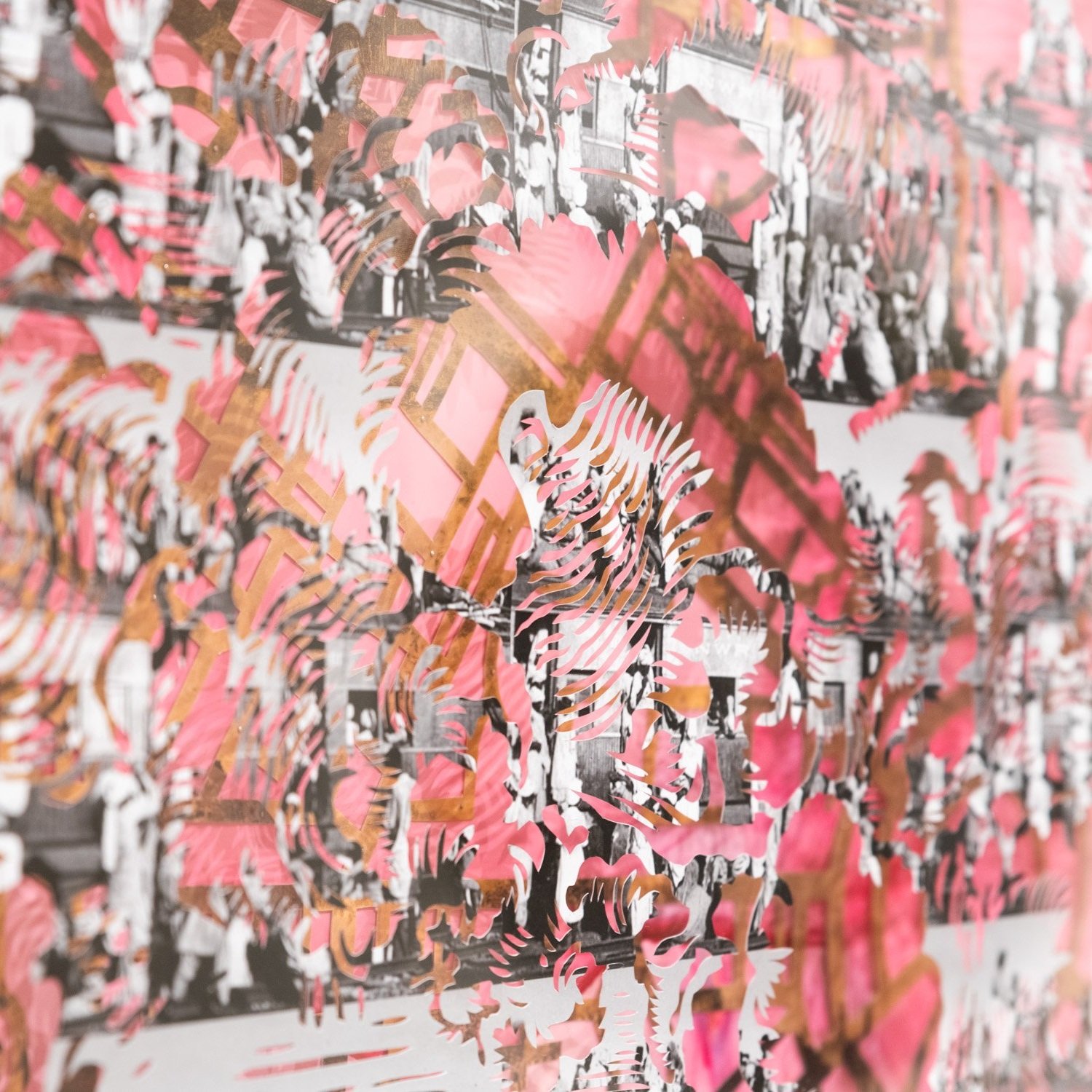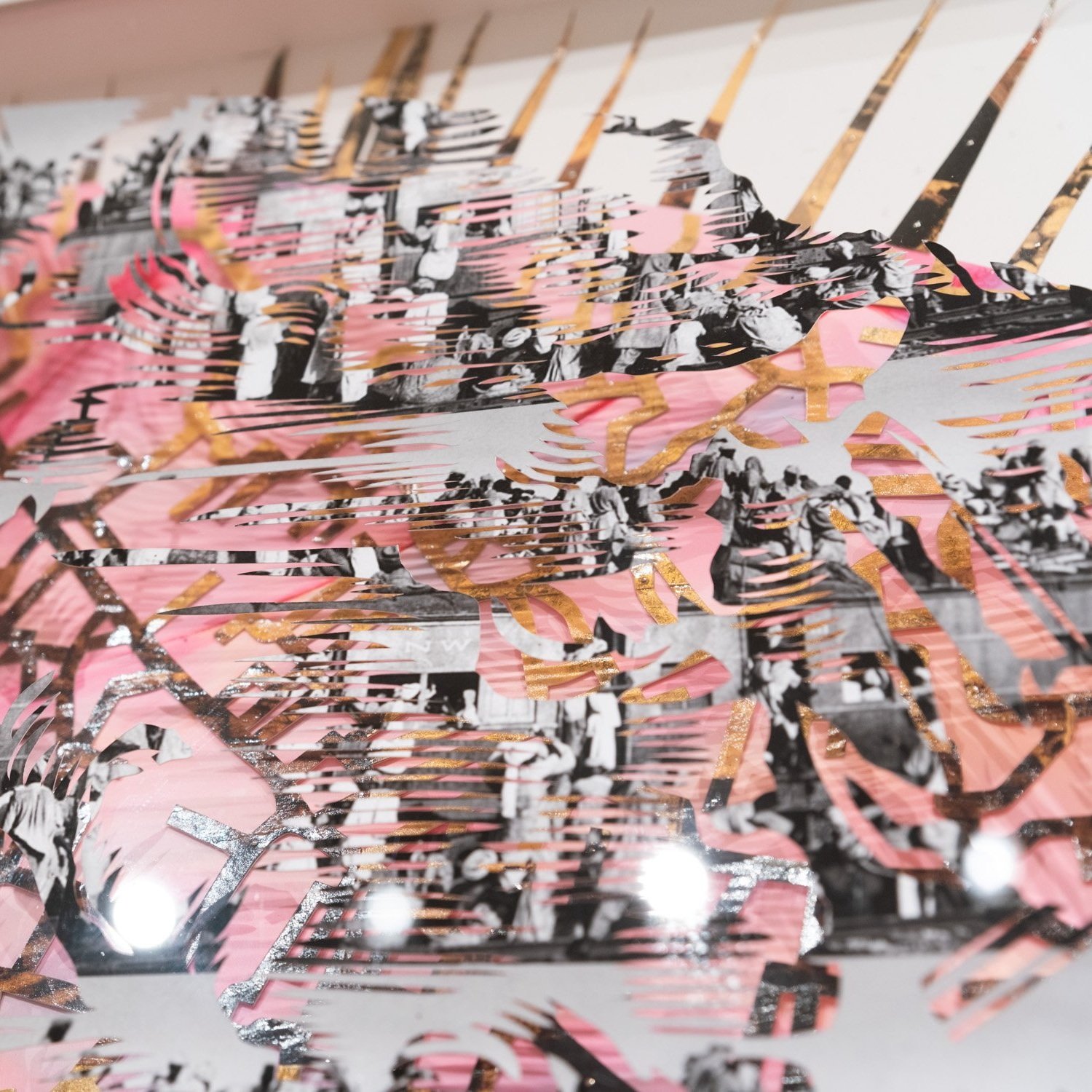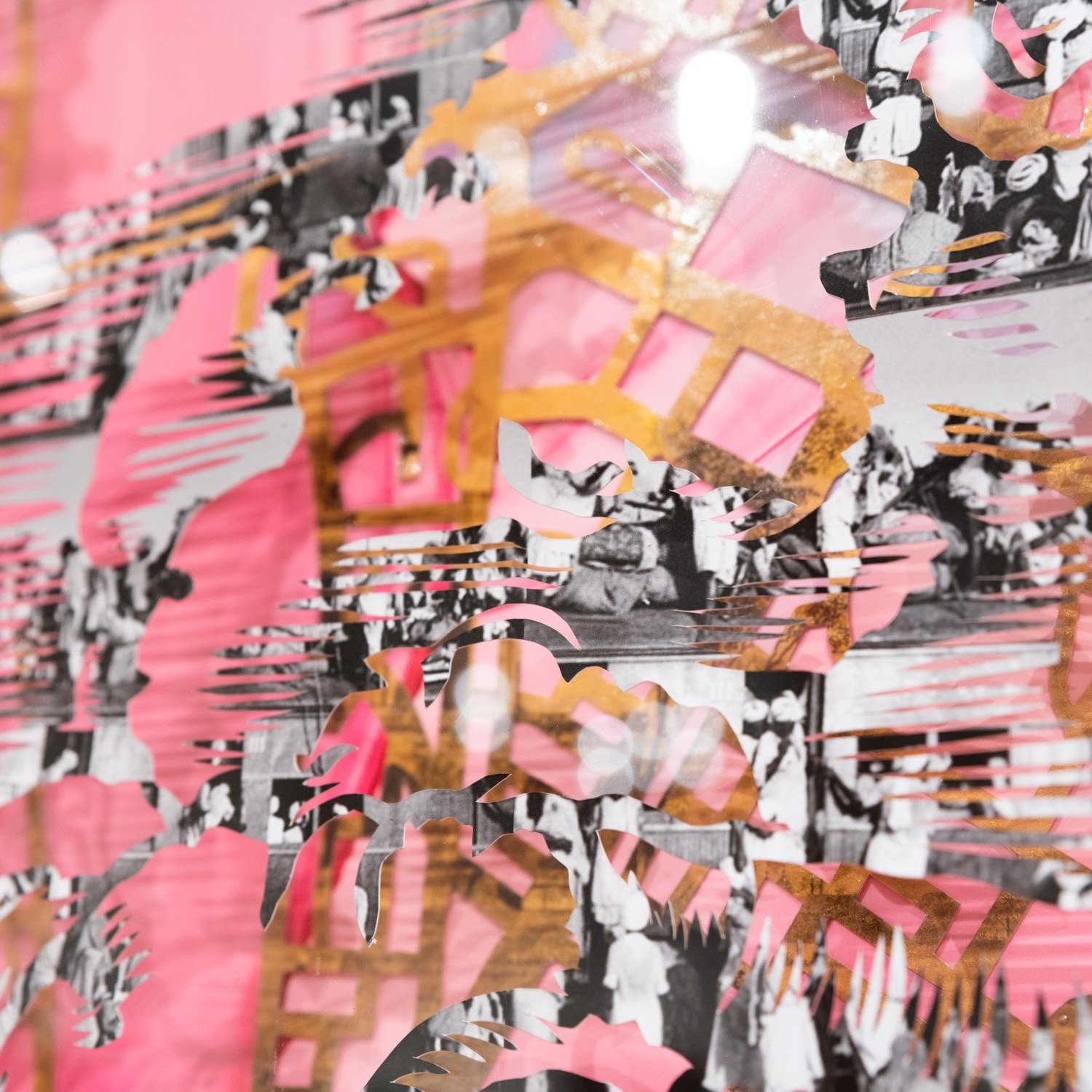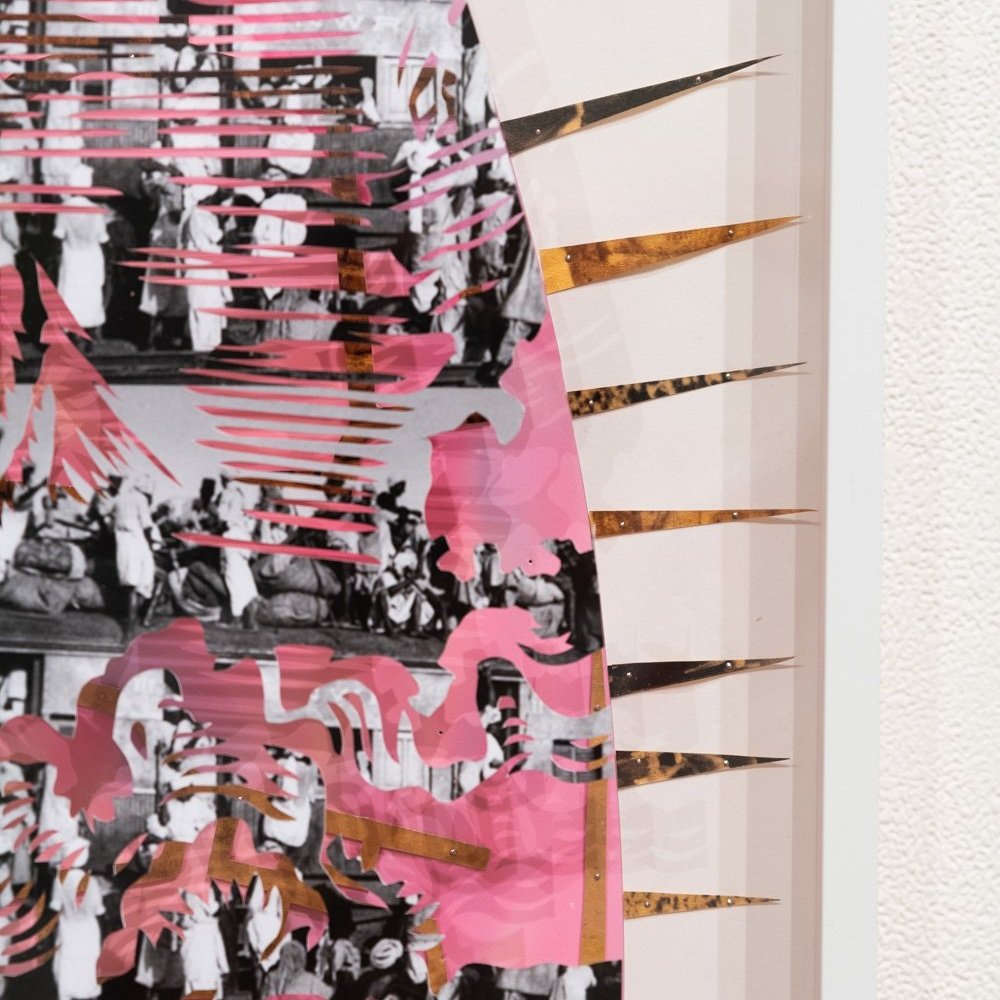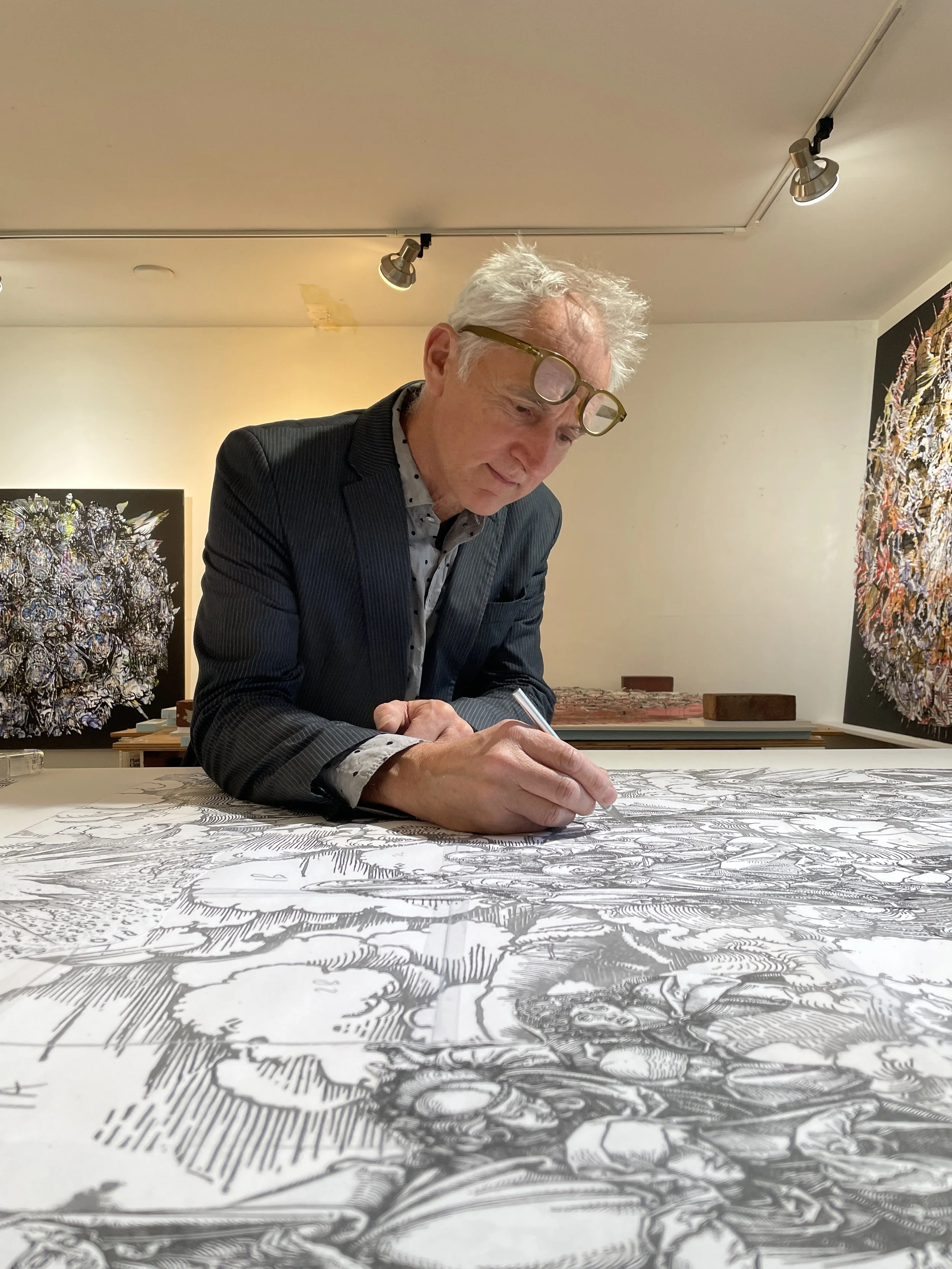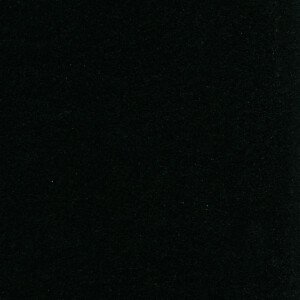Matthew Picton | The Age of Kali, age of Belief | Viewing Room
Matthew Picton, New Delhi #1 "The Age of Kali", 2021, archival mixed media and gold leaf, 64 x 64"
SOLD
Elizabeth Leach Gallery is pleased to present Matthew Picton’s latest three-dimensional paper sculptures featuring historical, religious, and spiritual symbology intertwined with newspaper headlines of current world events. The Age of Kali, age of Belief combines the ancient with the contemporary through meticulous layers of text and imagery that creates intriguingly evocative visual narratives.
Installation view of The Age of Kali, Age of Belief.
Picton’s elaborate cut-out designs, constructed from newspaper headlines and texts, are disarmingly gorgeous and intended to disrupt preconceived notions of a singular worldview. The exhibit includes the artist’s dynamic large scale color sculptural works along with medium-sized artworks, elegantly executed in a softened black and white newspaper print palette.
Detail image of The end of History, “Survivors Found”, 2022.
Matthew Picton, The end of History, "Survivors Found", 2022, hand cut archival pigment print, 22 x 19.5"
INQUIRE>
THE END OF HISTORY, “SUFFERING WIDENS”, 2022
DESCRIPTION BY MATTHEW PICTON
“We believed History had ended” – SERHII PLOKHY, PROFESSOR OF UKRAINIAN HISTORY
The front page of the New York Times has been cut through with one of the Russian
Criminal Tattoos collected by prison attendant Danzig Baldaev in the second half of the
20th century in Russia.
The tattoo in the surface is from the 1970s from an imprisoned Karachaevan male. The
text reads “The Russians are a people of self-eaters, sacrificially, mindlessly,
annihilating themselves and others and living nature”.
The rear layer is from the same New York Times front page and has been cut
through with the widespread tattoo of “The Criminal Authority” worn from the 1950s
onwards by the crime bosses. Since Vladimir Putin came to power there has been a
merging between the KGB and the bosses (the Vory) of the Russian Criminal
Underworld.
“In Russia, every business man pays his tribute, every politician has his Krysha (roof), or
protection, and the language of thieves has long since permeated the whole society”
– ALEXEI PLUSTER-SARNO.
Matthew Picton, The end of History, "Stiffer Sanctions", 2022, hand cut archival pigment print, 24 x 20"
INQUIRE>
THE END OF HISTORY, “SURVIVORS FOUND”, 2022
DESCRIPTION BY MATTHEW PICTON
The front page of the Wall Street Journal has been cut through with a tattoo from the
Siberian corrective camps in 1960. The middle layer is a Financial Times front page from
February 26, 2022, cut through with a tattoo titled "A Warrior's Grin". The lower layer is a
reverse copy of the New York Times front page from the 18th of March combined with
the tattoo of the criminal boss.
Practically the whole of modern Russian history has been drawn on the bodies of
Russian convicts.
"As in a mirror, everything the country has gone through has been
reflected in prison and camps life." – DANZIG BALDAEV
Matthew Picton, The end of History, "Suffering widens", 2022, hand cut archival pigment print, 24 x 20"
INQUIRE>
THE END OF HISTORY, “STIFFER SANCTIONS”, 2022
DESCRIPTION BY MATTHEW PICTON
The front page of the Wall Street Journal has been cut and combined with a Russian
criminal tattoo from the 1960s of a crime boss imprisoned in Siberia. The Angel wings,
cross and Orthodox Church Domes signify an authoritative thief.
Installation view of The Age of Kali, Age of Belief.
Matthew Picton, "The Well of Souls" Temple Mount, Jerusalem, 2022, archival mixed media, photographs, ink and gold leaf, 60 x 60"
SOLD
“THE WELL OF SOULS” TEMPLE MOUNT, JERUSALEM, 2022
DESCRIPTION BY MATTHEW PICTON
Jerusalem, the city where three of the world's major religions converge, and Temple Mount,
the sacred site for both the Muslim and Judaic religions, where the emotional intensity
of belief has not surprisingly lead to frequent disputes, frictions and violence, something
that continues to be an ongoing feature.
The imagery on the surface of the work depicts the Western Wall and those of Jewish
faith praying as they have done for the last two thousand years. For the Jewish, just
behind the Western Wall is the most sacred site in Judaism, the Holy of Holies, the
place where the world came into being. For the Muslim, on the rock, under the Dome, is where God is
believed to have created the first human, and where God created the world. It is also
the place where Abraham was asked by God to sacrifice his son. Under the rock itself is
a cave known as The Well of Souls, deriving from medieval Islamic legend that it is here
that the dead can be heard awaiting Judgement day. According to Jewish legend it
is below this cave amidst the ruins of the first Jewish Temple that the Ark of the
Covenant rests.
The Dome of the Rock is the third most holy site in the Muslim religion and is believed
to be the place where Muhammed ascended to paradise. The Western Wall forms the
outer boundary to the sacred site.
The surface has been cut through and combined with figures from the Biblical past.
This turbulent history is recalled by the half seen phantoms and ghosts of the figures of
religious history. Below this layer is the form of The Dome of The Rock, cut from a black
and white photograph of The Dome.
The surface has been heavily smoked and the rear layer is made from Mulberry paper
stained in ink and backed with gold leaf. Green has multiple meanings in Islam but in
particular is associated with nature, life and purity and is seen as the color of paradise.
The first Jewish temple was built by King Solomon in 957 BC and destroyed by the
Babylonian empire in 586 BC. It was initially rebuilt in 587 BC and expanded by King Herod in 1
BC, and then destroyed by The Roman Empire in 70 AD and invaded by The Crusaders in 1099 AD.
The Dome of the Rock was built on top of the site of the second Jewish temple in
approximately 688 AD.
Detail images of “The Well of Souls” Temple Mount, Jerusalem, 2022.
Detail image of The Angels and The Horns, 2021.
Matthew Picton, The Angels and The Horns, 2021, hand cut archival pigment print, 35 x 41"
INQUIRE>
THE ANGELS AND THE HORNS, 2021
DESCRIPTION BY MATTHEW PICTON
The South Rose Window of Chartres Cathedral in France depicts the apocalypse with Christ at the center. The print of this elaborate stained glass window has been cut through with multiple angels from Albrecht Dürer’s woodcut etchings of the Book of St. John, The Book of Revelations in the New Testament.
HAJJ, MECCA, 2022
DESCRIPTION BY MATTHEW PICTON
Five times every day a quarter of the world faces Mecca to pray–no site on earth commands a greater focusing of human energies and thoughts. It is the site of the largest annual pilgrimage, the revered site of the birthplace of the prophet Muhammad and the place where the Quran was believed to have been revealed to him. Inside the great Mosque lies the Ka’bah, believed to have been built by Abraham and Ismael.
The dense and detailed imagery upon the surface of the work contains multiple views of Mecca during the Hajj, the surface pattern is that of the great ceiling in the Sheikh Lotfollah Mosque in Isfahan, Iran, widely considered one of the most beautiful works of Islamic art in the world. The radiating pattern serves as a vehicle for transcendence and the contemplation of eternity that the interlocking patterns and forms of Islamic art create.
Below the surface layer are the shadowy forms of those at prayer during the Hajj, centered in circular form around the Ka’bah.
Matthew Picton, Hajj, Mecca, 2022, archival photographs, ink and Durlar, 56 x 56"
INQUIRE>
Detail image of Hajj, Mecca, 2022.
Matthew Picton, New Delhi #1 "The Age of Kali", 2021, archival mixed media and gold leaf, 64 x 64"
SOLD
NEW DELHI #1 “THE AGE OF KALI”, 2021
DESCRIPTION BY MATTHEW PICTON
New Delhi, The city of Djinns, as William Dalrymple described it in the title of his book of the same name. Prior to the British, there had been seven previous cities, seven incarnations of Delhi. Scattered across the expanse of today's vast metropolis lie the ruined monuments, mosques, mausoleums of the ancient cities, witness to the rise and fall of past civilizations and empires.
In the background of this sculpture imagery from the seven cities attest to the past conquerors and builders. The cities of Mehrauli, Siri, Tughlakabad, Feroz Shah Kotla, Jahanpanah, Din Panah, and Shahjahanabad, are bisected by the concentric circular form of the British empire's imperial capital.
In the very center is the former Viceroy's house, designed by Edwin Lutyens and now the Indian Presidential house known as Rashtrapati Bhavan.
The imagery above the background in this work has been created by making an amalgamated template of all the clouds and storms that appear in Albrecht Dürer's woodcuts. This template was then placed above combined prints of The Age of Kali, 2021 (pictured left), which have then been cut though and combined with the turbulent cloudscape.
From the Picton’s studio–photos of the seven cities with gold leafing. Image provided by the artist.
Matthew Picton, New Delhi #2, 1947, 2021, archival photographs, ink and Yipo paper, 64 x 64"
SOLD
Detail images of New Delhi #2, 1947, 2021.
NEW DELHI #2, 1947, 2021
DESCRIPTION BY MATTHEW PICTON
In this work, the same amalgamated cloudscape that appears in
New Delhi #1 has been cut through a series of images that depict the boarding of trains leaving to Pakistan. One third of New Delhi’s population left for Pakistan as part of the biggest migration in human history, an estimated 15 million people were uprooted along religious lines during the Indian Partition in 1947.
Picton cutting from Drurer’s cloudscape. Image provided by the artist.
Learn more about the exhibition in this video interview with Matthew Picton
MORE INFORMATION
Listen to Picton’s KBOO Radio interview with
Joseph Gallivan about the exhibition.
(time stamp: 3:37 - 31:58)




